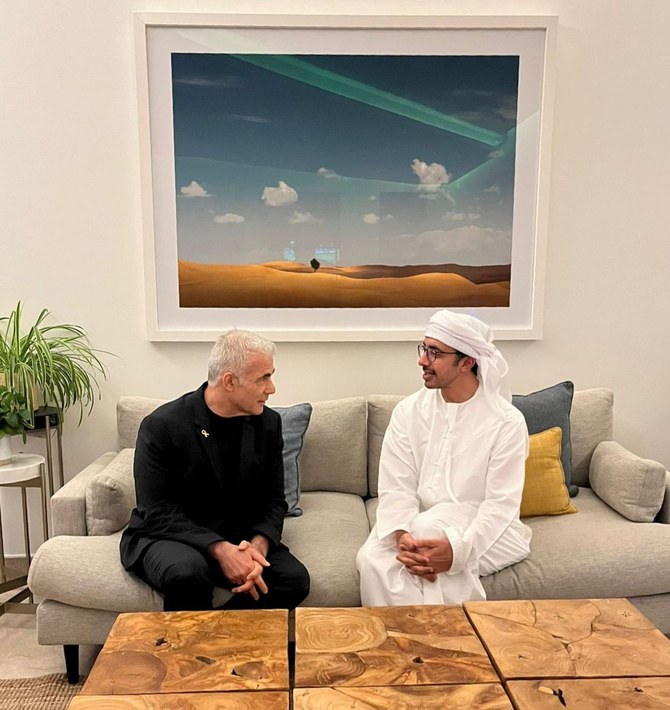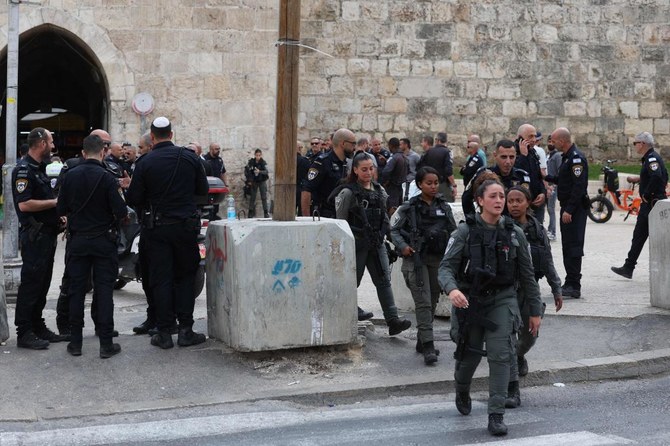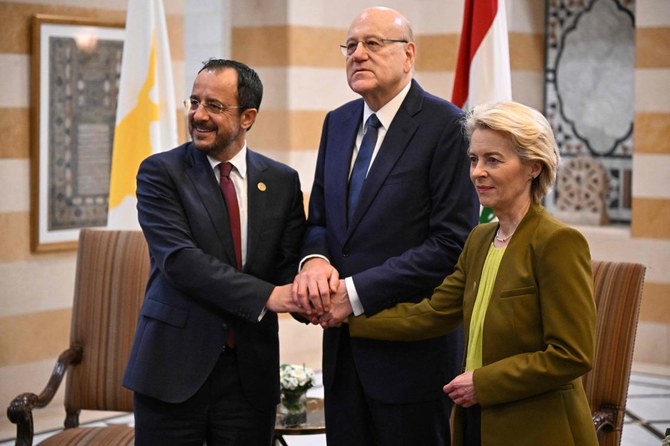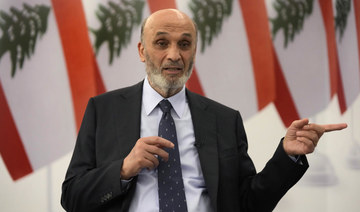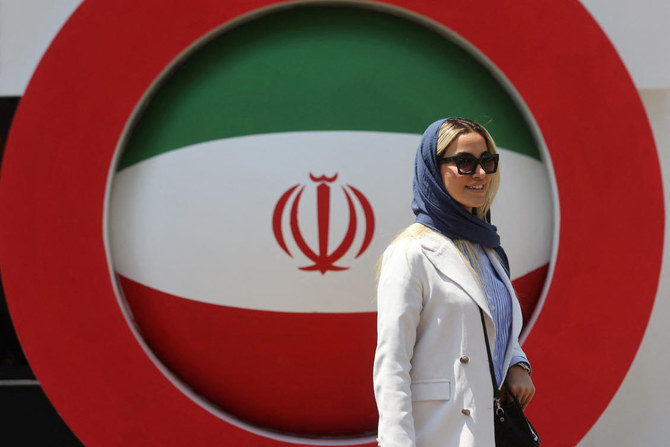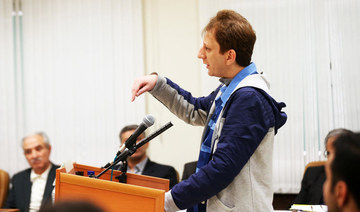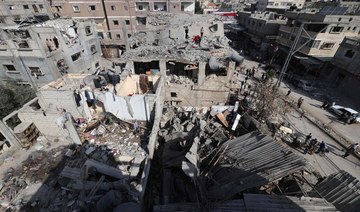DUBAI: Remote learning, where the student and the teacher are not physically present in a traditional classroom environment, has become the norm in most parts of the world that have been in the grip of the COVID-19 pandemic since 2020.
Information is relayed through discussion boards, video conferencing and online assessments. Educational activities have assumed a variety of formats and methods, most of which use computer technology over the Internet.
Now, with new variants of concern emerging such as the omicron strain, and infections again on the rise in many parts of the world, it increasingly looks as if remote learning, instead of being a stopgap, is here to stay.
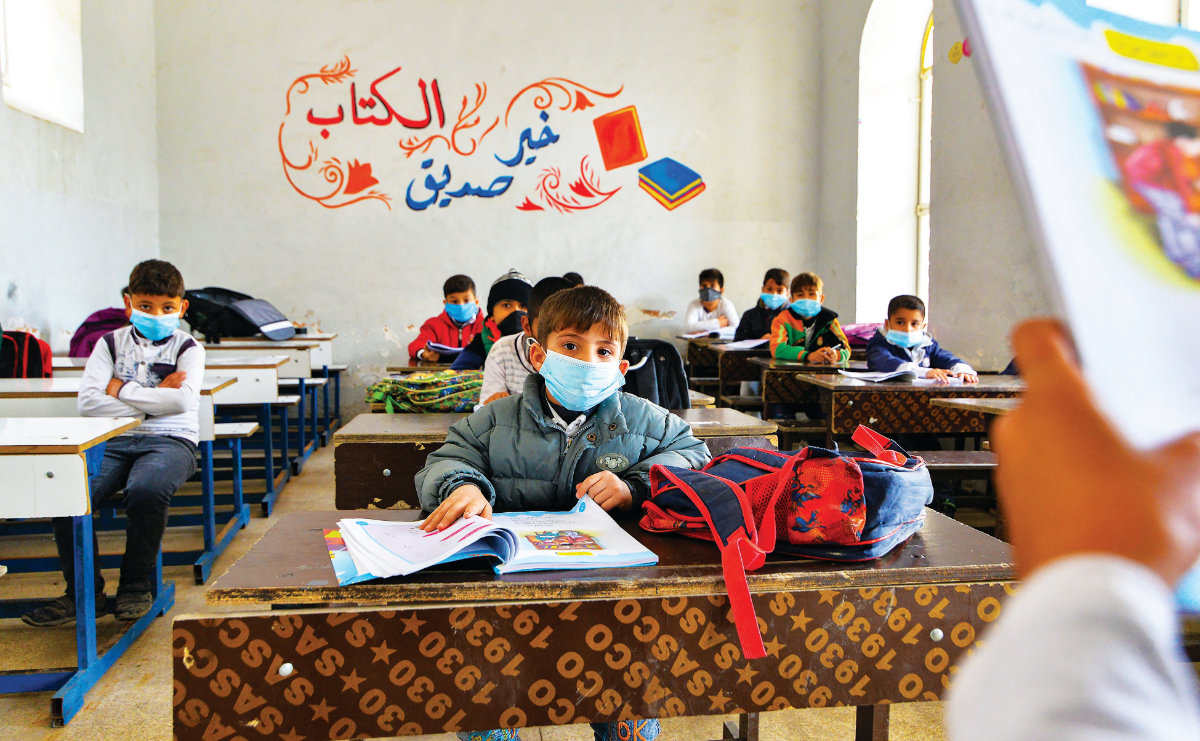
Iraqi pupils wearing face masks attend class on the first day of the new academic year in Mosul. (AFP)
Disrupting the school year for more than 1.7 billion students across the world, the pandemic has accelerated an existing trend toward digitalization, changing the way in which people study, work and interact.
What began as a temporary solution to allow schools and universities to complete the academic year while conforming to stringent social-distancing regulations has become a fixture of the education system.
Online education is now tightly woven into models of schooling, overturning the past reliance on traditional classroom teaching. As a result, a new hybrid model of education that combines both online and in-person teaching has emerged.
Many educators in the Gulf Cooperation Council countries say that the combination is a more “practical” and “economical” approach to learning in the 21st century. Jeffrey Smith, director of school partnerships at iCademy Middle East, believes blended learning, or hybrid learning, is the way forward.
“Today’s students and families are demanding more flexibility than a traditional education model can support,” Smith told Arab News, highlighting the evolving demands of the modern workplace as one of the main factors driving this change.
“They need quick and affordable access to information and classes to acquire skills.”
Developments in the education technology sector, known as EdTech, also reflect the new trend. Demand for online learning solutions has skyrocketed during the pandemic. The EdTech sector, which was valued at $227 billion in 2020, is forecast to grow to $404 billion by 2025.
Demand for online and hybrid courses at GCC universities had already been growing well before the pandemic. “Online learning produces better retention rates, which means higher graduation rates and more revenue for the universities,” Smith said
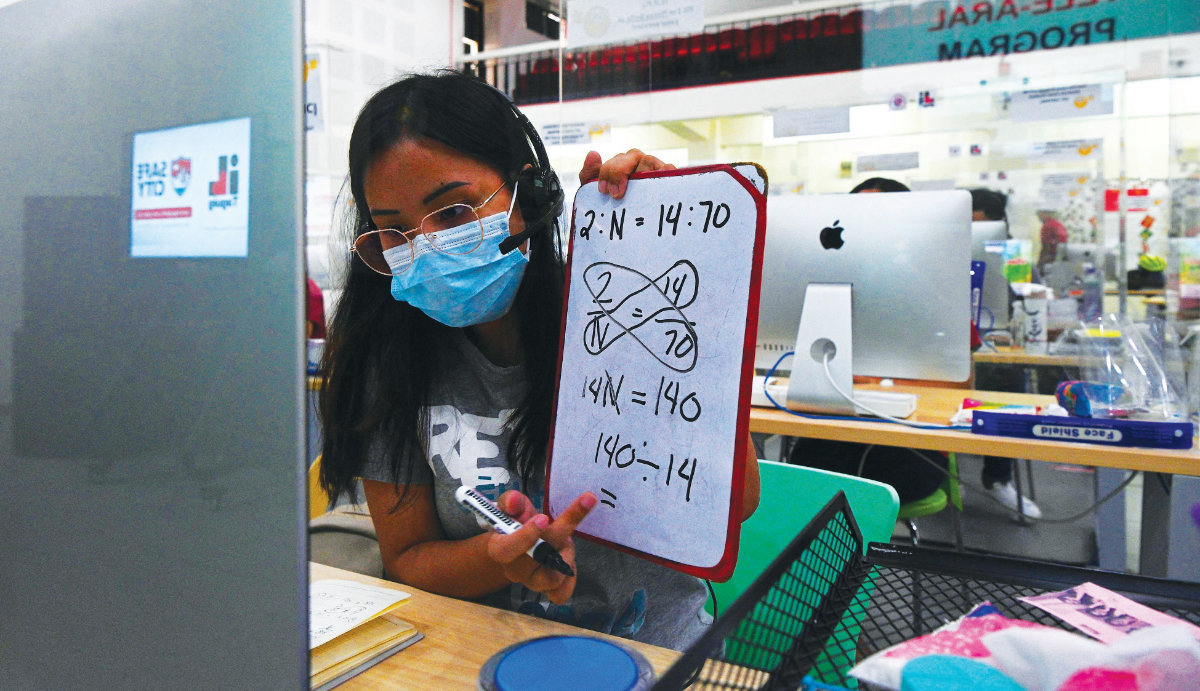
Teachers and lecturers have also had to adapt to the realities of the COVID-19 pandemic. (AFP)
In Saudi Arabia, the GCC’s biggest education market, some 77 percent of teaching was conducted remotely over the course of the pandemic, according to a study by cloud computing company Citrix Systems published in June.
The study, which surveyed a sample of C-level executives, IT managers, teachers and administrators at Saudi universities, showed that a majority (81 percent) believe the hybrid learning model will improve the learning experience over the next academic year, with half agreeing the new method will significantly improve learning.
Leading academic institutions in the UAE, Qatar, Oman, Bahrain and Kuwait have also committed to digitalizing their education sectors.
Unsurprisingly, the Middle East and Africa’s EdTech and smart-classroom market is projected to soar to $7.1 billion by 2027, according to a study by The Insight Partners.
Europe currently has the largest EdTech community, with more than half of the continent’s top 20 EdTech companies based in the UK — one of the largest suppliers of smart-education solutions to the Gulf region.
One example is Firefly, a portal used by more than a million students, teachers and parents, available in more than 600 schools in the UAE, Qatar, Oman and Saudi Arabia.
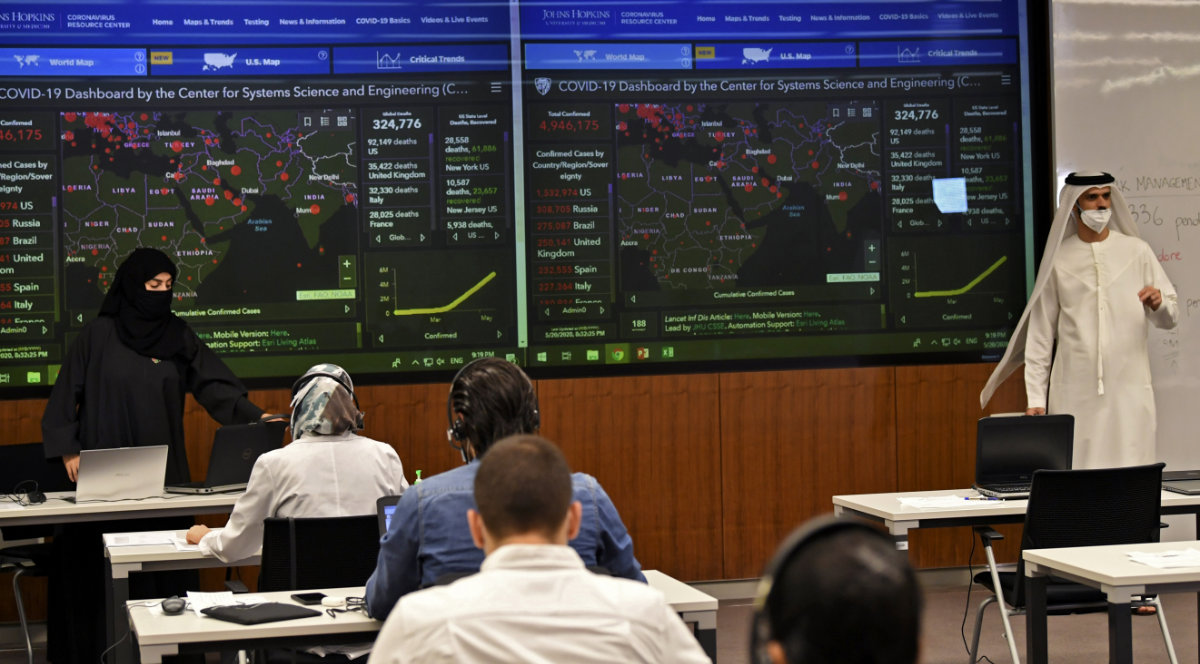
The Middle East and Africa’s EdTech and smart-classroom market is projected to soar to $7.1 billion by 2027. (AFP file photo)
The growing popularity of online learning is evident at the Applied Science University in Bahrain, where students were given the choice to either return to campus after the lifting of COVID-19 restrictions or to continue their studies remotely for the 2021 academic year.
“We had 25 percent of our students who decided to study on campus and 75 percent who decided to study from home,” Ghassan Aouad, ASU president, told Arab News.
While negative “psychological” impact of the pandemic on students is a major concern, Aouad says, online learning has major advantages.
“We have delivered the learning outcomes to our students in the highest quality and, in fact, it may have been advantageous by having all the lectures recorded for them,” he said.
The shift online has also enhanced IT skills, improved time management and increased independent learning among students, he said.
INNUMBERS
1.7 billion - Students who had their education disrupted by the COVID-19 pandemic.
460 million - Young people worldwide who cannot access remote-learning programs.
$404 billion - Global value of the EdTech sector by 2025, up from $227 billion in 2020.
To be certain, the hybrid model is not without its drawbacks, considering that nearly half the world’s population does not have ready access to the Internet. For institutions lacking the right online infrastructure, problems with technology, accessibility and communication between teachers, students and parents are fairly common.
A high number of schools and universities were not prepared for the transition when the pandemic struck, but were forced to adopt the distance learning model as a way to stay afloat.
In fact, according to a recent UNICEF report, at least 460 million students worldwide cannot access remote learning programs because they lack the necessary devices or infrastructure.
In the interests of inclusivity, schools and universities are working hard to return students to classroom learning. In the UAE, recently announced safety protocols have been designed to facilitate a return to 100 percent in-person learning from Jan. 2022.
Similarly, the Saudi government has spent more than SR1 billion on upgrading facilities in accordance with safety protocols to ensure the smooth return of students and staff to schools and universities.
The Saudi Food and Drug Authority has also approved the Pfizer vaccine for children aged 5-11, which will allow pupils in that age group to return to the classroom.
Although online models of learning have provided a practical solution to meet the needs of the pandemic, few believe traditional classroom learning has had its day.
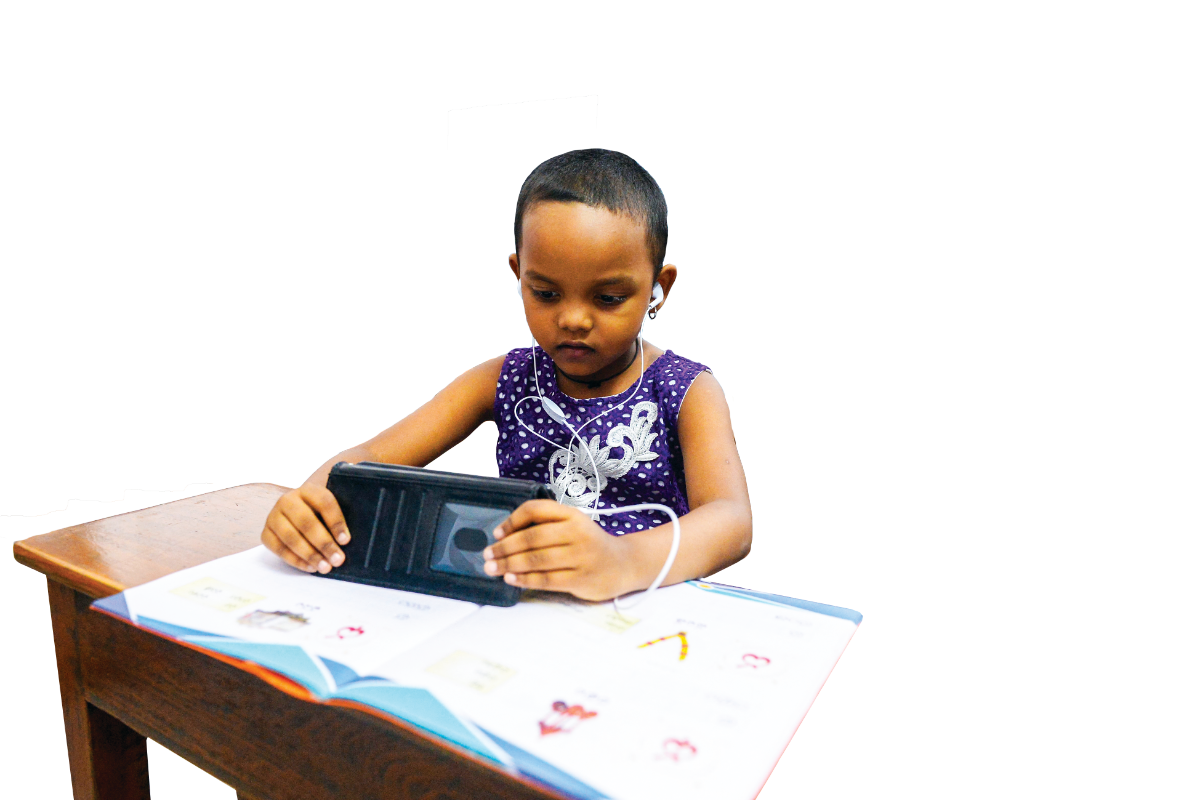
Almost half of the world’s population has no internet access. (AFP)
“I can’t imagine the hybrid model being 50-50,” Aouad said. “On-campus, traditional learning will be dominant with an element of online learning. This will become the norm, especially for general studies types of courses. For practical courses, however, students will have to be on campus.”
Furthermore, according to him, the interpersonal, analytical, and critical-thinking skills that students need to succeed in many professions cannot be taught over a webcam.
Parents naturally are divided over the benefits of in-person and remote learning. A recent UAE government poll involving 28,171 participants found that 59 percent of parents would rather their children learn remotely, versus 41 percent who were in favor of in-person classes.
George Tharakan, whose 10-year-old child attends the Apple International Community School in Dubai, believes learning from home has improved family interaction, eliminated school bullying and allowed parents to help with assignments and activities.
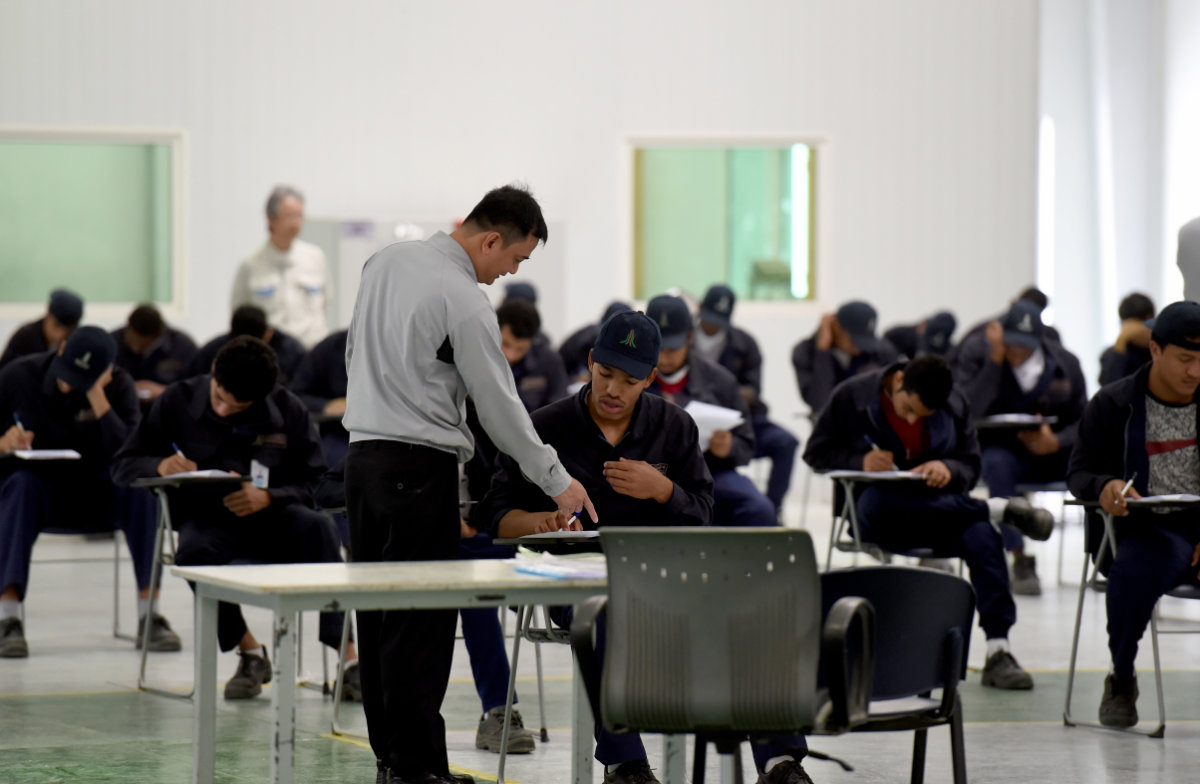
Interpersonal, analytical, and critical-thinking skills that students need to succeed in many professions cannot be taught over a webcam. (Supplied)
On the other hand, he admits that his child may be missing out on formative interactions with other students, neglecting their writing skills in favor of typing and verbal communication, and suffering disruptions caused by technical issues.
Aaliyah Khan, a mother of two, was impressed by the rapid and smooth transition to online learning during the pandemic, but remains a supporter of traditional classroom learning.
“Online learning should only be out of necessity, not out of choice. I am not a big fan of a hybrid model either, as it includes exposure to screen time, which I do not support,” Khan told Arab News.
“With face-to-face learning, students socialize and build healthy connections. That is why we humans are called social animals. Apart from social skills, the children can concentrate better and participate more actively in classroom learning.”








